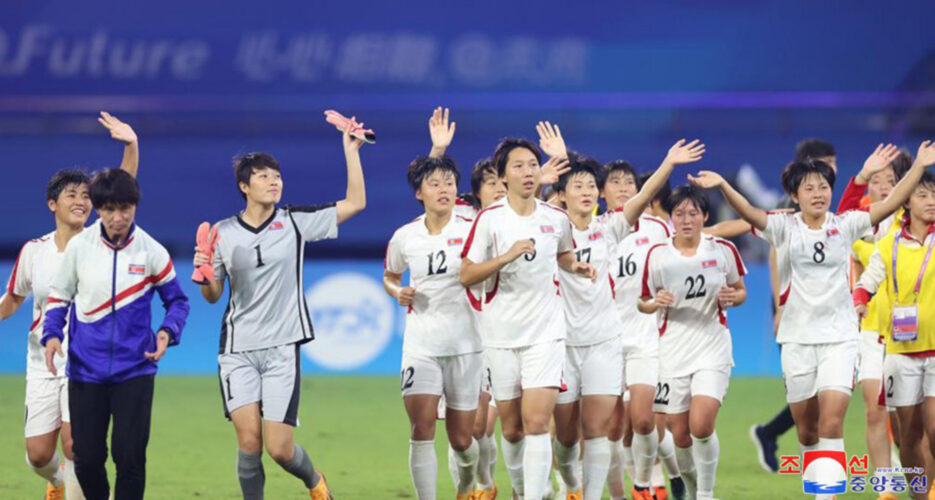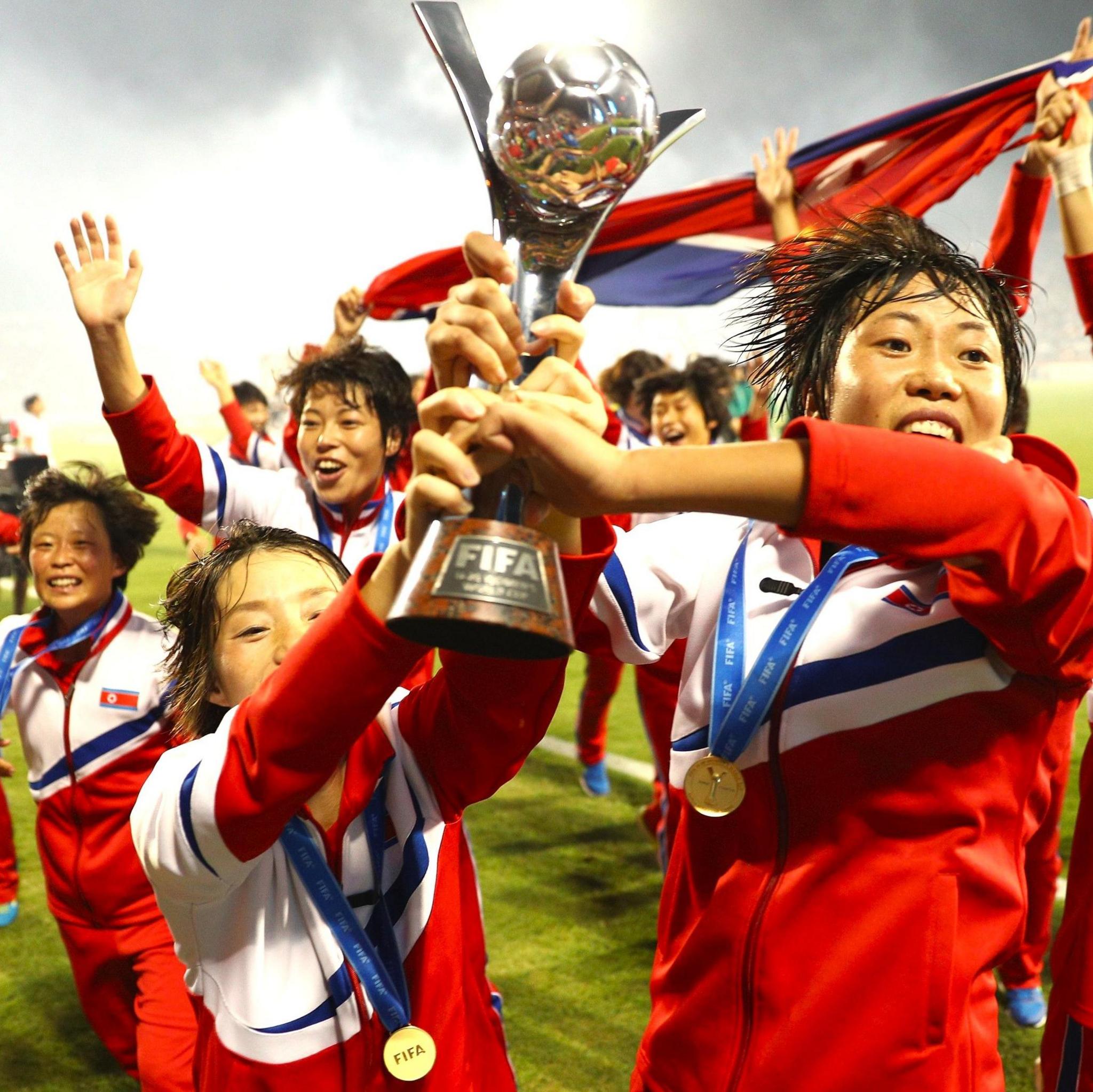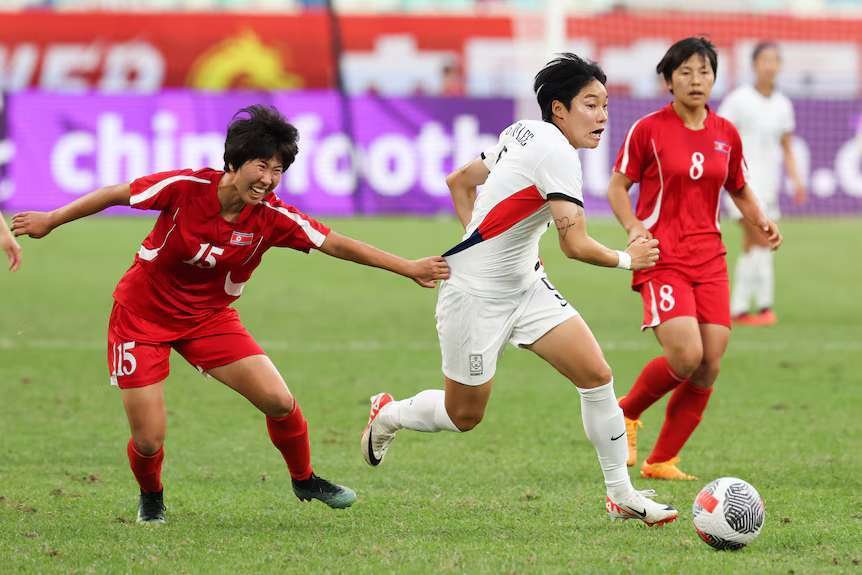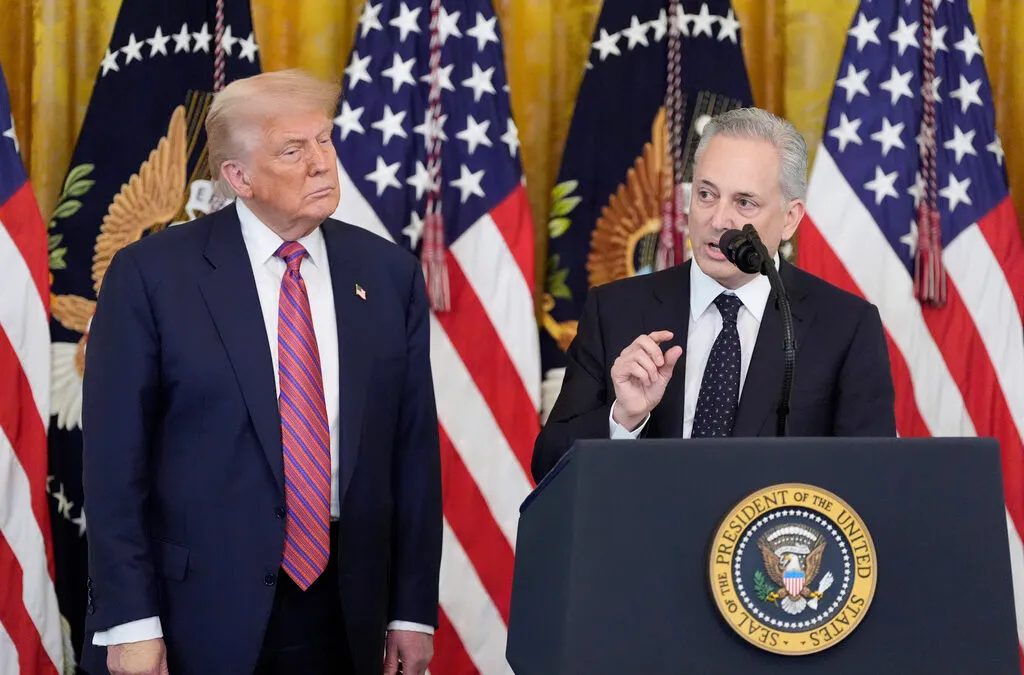The North Korean women's football team has achieved remarkable success, especially in the Asian football scene, with victories in the Asian Games and the AFC Women's Asian Cup. Despite their accomplishments, these athletes face extraordinary challenges, reflecting the restrictive nature of North Korean society. Under constant supervision and intense pressure to perform, players are expected to represent national strength and resilience. Their training regimens are reportedly strict, with limited personal freedoms and little exposure to the outside world. The players’ experiences shed light on the challenges of excelling in sports within an authoritarian regime.
The Training and Restrictions
Players endure extremely rigorous training schedules, often under surveillance, with strict rules governing their behavior. The North Korean regime places a high value on athletic success as a means of projecting strength and pride, and athletes are seen as national heroes who embody the ideals of discipline and loyalty. However, this emphasis also means that underperformance is not well tolerated, and players face significant consequences if they fall short of expectations.

Limited Interaction and Isolation
The team has limited interactions with the international community due to the country's isolationist policies. Unlike other teams that participate in exchange programs or training camps abroad, North Korean players rarely have the chance to experience other cultures or interact with foreign athletes. When they do participate in international competitions, they are closely monitored, and their movements are often restricted.
Symbolism and National Identity
For the North Korean government, the women’s football team is more than just a sports team; it is a symbol of national identity. The team's success is used to promote the country's ideology and showcase its self-reliance. Victory on the international stage is celebrated as proof of the nation's strength, with athletes often receiving accolades and awards from the government. However, this means that players carry the weight of national pride on their shoulders, which can be an immense burden.

Notable Achievements and Future Outlook
Despite these challenges, North Korean women’s football has made significant strides. The team has consistently performed well in regional tournaments, showcasing impressive skill and resilience. However, the future of the team remains uncertain, as political tensions and the country’s isolation may affect their opportunities for growth and international competition. As global sports become more interconnected, North Korean athletes continue to face a unique set of obstacles, both on and off the field.
These secret battles make the successes of North Korea’s women’s football team all the more remarkable, as they navigate the complex interplay between athletic ambition and political oversight.

The North Korean women’s football team has faced numerous challenges that extend beyond the field. While they’ve achieved considerable success, winning various regional and international titles, they operate within a restrictive regime that tightly controls their activities. Players often undergo rigorous training and face pressure to succeed as symbols of national pride. Reports suggest that, like other North Korean athletes, these players have limited personal freedoms and are subject to strict oversight, reflecting the broader realities of life under North Korean governance.
Gender Inequality and Societal Expectations: While North Korea promotes its female athletes as symbols of the regime's commitment to equality, the reality is that gender inequality still permeates the system. Women, even those in elite sports, are often expected to adhere to traditional roles, with societal pressures pushing them toward family obligations once their sporting careers are over. Female footballers, despite their accomplishments, face challenges in gaining the same level of respect or recognition as their male counterparts, and their post-sporting lives are often marked by a return to ordinary duties with little fanfare.

Health and Medical Issues: North Korean athletes often face health challenges due to inadequate medical care and nutrition, which are issues not unique to athletes but to the country as a whole. While elite athletes receive better food and healthcare than the general population, it is still often insufficient by international standards. Injuries, if not career-threatening, can go under-treated, and players may be forced to continue playing through pain due to the pressure to win at all costs.
International Success Amid Secrecy
Despite these challenges, the North Korean women's football team continues to excel on the field. In the AFC Women's Asian Cup, the team has won multiple titles, and in youth competitions like the FIFA U-17 and U-20 Women's World Cups, North Korea has won championships and consistently placed among the top teams. These successes, however, come with layers of state-controlled narratives. International victories are often used as propaganda tools to showcase North Korea’s superiority and commitment to equality, even if the reality for the athletes is much more complex.
Hope and Resilience

Despite the harsh conditions and secret battles faced by North Korean female footballers, their resilience and talent remain undeniable. The world only sees glimpses of their lives—through their performances on the field and occasional reports from defectors or international observers. However, the struggles they endure off the field paint a different picture, one of perseverance in the face of tremendous adversity.
For many of these athletes, football provides a sense of purpose and pride, even as they navigate the immense pressures of their political and social environment. Their love for the sport, coupled with their drive to succeed, allows them to push past the barriers imposed by the regime. For some, international travel offers a rare opportunity to glimpse life outside of North Korea, and there are stories of players who have defected while abroad, seeking refuge and freedom in other countries.
Conclusion

The secret battles of North Korean women’s football players are a stark reminder of the complexities that lie beneath the surface of international sporting success. While they have achieved greatness on the field, these athletes are also navigating a world of political pressure, intense training, gender inequality, and restricted freedoms. Their resilience in the face of these challenges speaks to the strength of their character, even as the world continues to catch only fleeting glimpses of their lives behind the walls of North Korea's regime.







